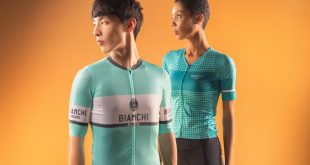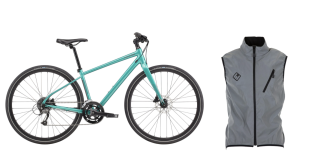After a major boom for business, Devonshire cycling kit manufacturer NoPinz anticipates a rough period for the trade – Alex Ballinger gets the full story behind the brand
This piece first appeared in the March edition of BikeBiz magazine – get your free subscription here

In business, a simple idea is often the strongest. It was an idea in this vein that sparked Devonshire cycling kit brand Nopinz into life back in 2015.
Frustrated by damaging his expensive racing jersey when pinning on numbers, founder Blake Pond unveiled an industry first in the SpeedPocket, an integrated pocket that let racing cyclists display their number without poking holes in their lycra.
Now seven years on from its inception, Nopinz is a well-established name in the British road racing and time trial scene, has collaborated with top-level WorldTour teams, and continues to find innovations.
Nopinz sales director Gary Chambers told BikeBiz: “The company has disrupted the industry through innovation since inception, developing an accomplished range of race and training apparel from its UK manufacturing base, aimed at those looking for an edge over their competition or when pursuing PBs and Strava segments.
“The brand is also a leader in custom designs for clubs and race teams, as well as offering its personal tailoring service using electronic body-scanning to achieve the perfect fit.”
Having found its niche in the domestic performance cycling market, Nopinz has a clear idea of its appeal to riders but is also aware of the wider appeal of its kit.
Chambers said: “Our core market is the British time trial and road race scene. This is certainly our biggest market and where our roots lie, however, we also have a good following from track, cyclocross and XC riders as well as catering for triathletes with our Tri Suits. With the increasing number of riders training indoors since the pandemic, we have made strides in the indoor racing market with our indoor-specific range, SubZero. Essentially, we cater for any rider looking for marginal gains from their cycling kit.”
Based in its factory HQ in Barnstaple, Devon, Nopinz has plenty of space to expand on its new ideas, which most recently include the SubZero range – cycling kit designed for the demands of indoor training and Zwift racing.
Subzero introduced FreezePocket technology, effectively ice packs tucked into purpose-built pouches on the jersey and shorts to stop riders overheating when cycling on their turbo trainer or rollers indoors.
Having recently moved into a new premises, Nopinz now has an upstairs space where the design teamwork, along with a downstairs production facility where kit is printed, cut and sewn. The main factory totals 4,500 metres squared, while the warehouse is 2,000 square foot – Plenty of space for the 21 employees currently representing Nopinz.

Like all businesses in the cycle trade, the past 18-months have been unpredictable and unsettling for Nopinz, while offering some unique opportunities for growth that the brand has tried to capitalise on.
“The last 18 months have seen a lot of growth for the company,” Chambers said. “We have moved to a new premises which is much bigger than the previous factory and the team has grown too. Our customer base has certainly grown and we have seen an increase in international orders from regions including America, Australia and the UAE.”
He added: “Further expansion within the UK, however, is always difficult with the rising prices across the board with wages, utilities and rent. To navigate this and continue to facilitate the growing number of riders globally buying Nopinz products, we have recently set up an international factory partnership to produce some of our collections.
“This allows us to free up some capacity in the UK factory which we use predominantly for custom and club kits. This partnership has already been fruitful with the release of a number of new ranges including our first dedicated MTB apparel with the Enduro Jersey.”
But the Nopinz team are also wary of what the future may hold, both for the business and for the trade as a whole. The pandemic sparked a boom in cycling, but as the wave now crests the supply-chain issues caused by global lockdowns, travel restrictions, and surging demand are likely to persist.
“Supply chain of fabrics has become increasingly compromised over the past few years,” Chambers said, “And so we now need to order fabrics much further in advance and in bigger volumes to avoid production and lead times being affected.
“The increasing price of fabrics and raw materials paired with rising energy costs and salaries in the UK meant that we had to effect a slight price rise last year while also sacrificing margins. Then, finally, since Brexit shipping to and importing from the EU has become troublesome and led to increased costs and obstacles to overcome too.”
He added: “Supply chain interruption is leading to increased lead times on everything. This is creating a huge supply and demand culture which is impacting consumer costs too with product demand so high – something highlighted with components especially, but also in textiles.”
 BikeBiz Bicycle and cycling retail news
BikeBiz Bicycle and cycling retail news




